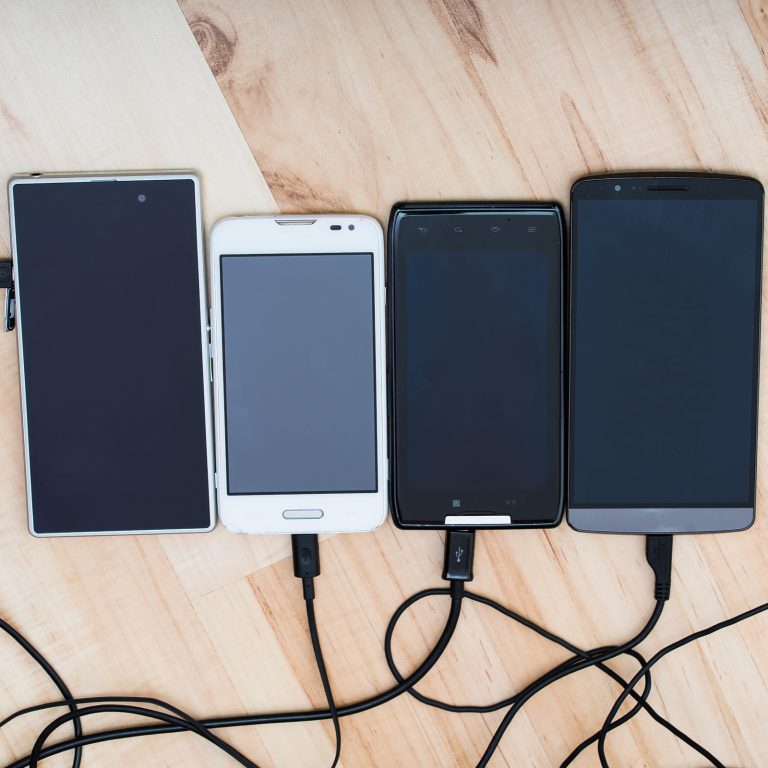Chinese Household in Trouble for Chasing a Lost Cause – Mining Bitcoin with Phones
source: Bitcoin News
2018. Apr. 29. 00:20

A Chinese household has been stealing electricity to mine bitcoin using 50 mobile phones and 15 improvised mining rigs. The home workshop has consumed almost 33,000 kWh of unbilled electricity. That should be enough for a couple of bitcoins, but using a smartphone for the job is not really an option.
Also read: 80% of the 21 Million Bitcoins Have Been Mined Into Existence
Stealing Kilowatts to Mine Peanuts
An electric utility company in China has uncovered an illicit mining operation that was simply not worth the risk. A household in the province of Guangdong was caught stealing electricity to power a bitcoin mining farm at home. The improvised facility was found by workers from the Meizhou municipal branch of the China Southern Power Grid Company. During a routine inspection in Fengshun County they discovered some illegally connected power cables and became suspicious.
The cables ran over a back alley to the upper floor of a residential building. They powered 56 mobile phones and 15 homemade mining rigs, as seen on the photographs posted on the popular Chinese microblogging platform Weibo. According to the South China Morning Post, the equipment has been used to mint bitcoins.
Mining the oldest cryptocurrency is a power-intensive activity. It requires a lot of electricity and needs some serious cooling. Highly specialized hardware handles the enormous number of calculations involved in the processing of bitcoin transactions. The units capable of doing all that are called Application-Specific Integrated Circuits (ASICs). It is possible to mine many other cryptos with non-dedicated hardware, but then again powerful graphics processing units (GPUs) are used. Employing mobile phones to mine bitcoin, with their negligible computing power, is not a profitable undertaking.
Mining a single bitcoin consumes an average of 18,000 kilowatt hours of electricity. The proof of work for bitcoin has burned more than 40 TWh of electricity in 2017, according Digiconomist. Processing ethereum transactions spent more than 10 TWh. The Chinese household, however, didn’t pay anything for the electricity consumed by its rigs and phones. That leaves some room for profit, if the energy was used to mine some of the altcoins.
According to officials from the utility company, the illegal farm has consumed an estimated 32,940 kWh of stolen electricity. Chinese police are still investigating the case, the local newspaper Yangcheng Evening News reported. Authorities have not yet named the individuals involved in the illicit crypto mining operation.
Bitcoin Mining Still Legal in China
Unlike initial coin offerings and crypto trading, cryptocurrency mining is not yet considered illegal in the People’s Republic. Some of the world’s largest mining facilities are concentrated in power-rich regions and provinces with cooler climates. According to many estimates, up to 80% of the global bitcoin mining capacity currently resides in China. The status quo, however, may change in the future.
Earlier this year reports suggested that potential energy shortages in the provinces where the largest mining facilities are located have worried Beijing. Authorities in two autonomous regions – Inner Mongolia and the Xinjiang-Uygur, and two provinces – Sichuan and Yunnan, received recommendations to restrict electricity supplies to mining farms.
Even if the Chinese government decides to ban these operations, bitcoin mining won’t stop. Russia and other countries in Eastern Europe, Canada, Iceland, and the US have received attention as mining destinations, and are even competing to attract Chinese miners.
What do you think about crypto mining with smartphones? Tell us in the comments section below.
Images courtesy of Shutterstock, China Southern Power Grid Co.
Bitcoin News is growing fast. To reach our global audience, send us a news tip or submit a press release. Let’s work together to help inform the citizens of Earth (and beyond) about this new, important and amazing information network that is Bitcoin.
The post Chinese Household in Trouble for Chasing a Lost Cause – Mining Bitcoin with Phones appeared first on Bitcoin News.





